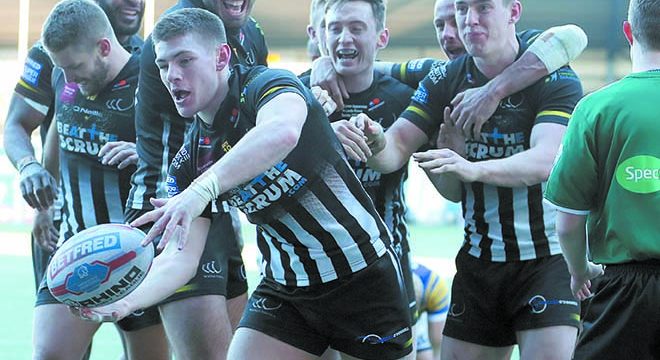 Widnes Vikings have one of the most productive youth development systems in the game. MATTHEW SHAW looks at the factors behind its success
"They're here to be Super League players, not Academy players." - Under 16 head coach Ryan O'Brien
THE world of sport is a cut-throat business.
The inherent desire for results, the infatuation with vic
Widnes Vikings have one of the most productive youth development systems in the game. MATTHEW SHAW looks at the factors behind its success
"They're here to be Super League players, not Academy players." - Under 16 head coach Ryan O'Brien
THE world of sport is a cut-throat business.
The inherent desire for results, the infatuation with vic Culture Club: Widnes Vikings
 Widnes Vikings have one of the most productive youth development systems in the game. MATTHEW SHAW looks at the factors behind its success
"They're here to be Super League players, not Academy players." - Under 16 head coach Ryan O'Brien
THE world of sport is a cut-throat business.
The inherent desire for results, the infatuation with vic
Widnes Vikings have one of the most productive youth development systems in the game. MATTHEW SHAW looks at the factors behind its success
"They're here to be Super League players, not Academy players." - Under 16 head coach Ryan O'Brien
THE world of sport is a cut-throat business.
The inherent desire for results, the infatuation with vic 